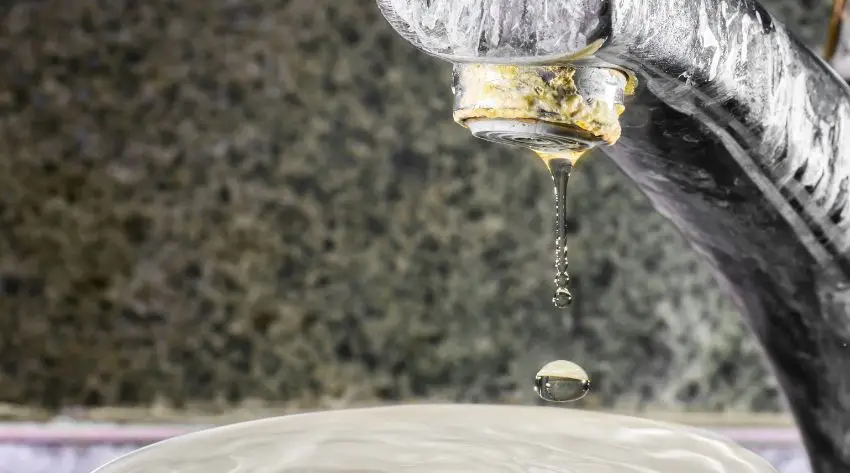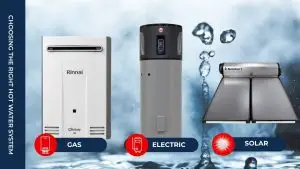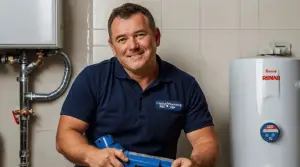Hard water is a common issue faced by homeowners on the Gold Coast. It contains high levels of dissolved minerals, primarily calcium and magnesium, which can have long-term effects on your plumbing system. While hard water is not harmful to health, it can cause various plumbing issues, increase maintenance costs, and reduce the efficiency of water-based appliances. In this blog, we’ll explore the impact of hard water on your plumbing and provide solutions to mitigate its effects.
What is Hard Water?
Hard water contains high concentrations of dissolved minerals such as calcium, magnesium, and trace amounts of other elements. These minerals accumulate naturally as water travels through soil and rock formations before reaching your home. The hardness of water is measured in grains per gallon (GPG) or parts per million (PPM), with anything above 7 GPG considered hard water.
Signs of Hard Water in Your Home
If you live on the Gold Coast, you may notice these common signs of hard water:
- Limescale buildup on taps, showerheads, and sinks.
- Soap scum residue on bathroom surfaces.
- Reduced water pressure due to mineral deposits inside pipes.
- Appliance inefficiency in dishwashers, washing machines, and water heaters.
- Dry skin and hair after showering.
- Spots or streaks on glassware and dishes after washing.
Recognising these signs early can help prevent long-term plumbing damage and inefficiencies in your home.
How Hard Water Affects Your Plumbing System
1. Pipe Blockages and Scale Buildup
One of the most significant impacts of hard water is mineral accumulation inside pipes. Over time, calcium and magnesium deposits create limescale, which narrows pipe diameter and restricts water flow. This can lead to:
- Reduced water pressure in taps and showers.
- Frequent pipe blockages, requiring costly repairs.
- Potential pipe corrosion in older plumbing systems.
2. Damage to Water Heaters
Water heaters are particularly vulnerable to hard water damage. When minerals accumulate in the heating element and tank, they reduce the system’s efficiency and lifespan. This can result in:
- Higher energy bills due to increased heating time.
- Frequent maintenance issues, including overheating and noisy operation.
- Premature failure, requiring costly replacements.
3. Shortened Appliance Lifespan
Hard water affects household appliances that use water, including dishwashers, washing machines, and coffee makers. Mineral deposits cause:
- Clogged pipes and jets, reducing performance.
- Soap and detergent inefficiency, leading to dull clothes and dishes.
- Frequent repairs or replacements, increasing maintenance costs.
4. Stubborn Soap Scum and Cleaning Challenges
The minerals in hard water react with soap to create a sticky residue known as soap scum. This leads to:
- Hard-to-clean bathroom surfaces like tiles, bathtubs, and sinks.
- Residue buildup on dishes and glassware, leaving them spotty.
- Increased detergent use, adding to household expenses.
5. Skin and Hair Issues
Hard water isn’t just a plumbing problem—it also affects personal care. The mineral deposits left behind on the skin and hair can cause:
- Dry, itchy skin due to soap residue.
- Lackluster, brittle hair with increased breakage.
- Ineffective lathering of soap and shampoo, leading to higher usage.
How to Mitigate the Effects of Hard Water
Although hard water can cause plumbing issues, several solutions can help protect your home:
1. Install a Water Softener
A water softener is the most effective way to combat hard water. It uses ion-exchange technology to remove calcium and magnesium from the water supply. Benefits include:
- Extended lifespan of plumbing systems and appliances.
- Reduced scale buildup, improving water flow and pressure.
- Softer skin and hair, as soap and shampoo lather better.
2. Use a Descaling Agent
If a water softener isn’t an option, descaling agents can help remove existing buildup from pipes and appliances. Products such as vinegar or citric acid can be used regularly to dissolve mineral deposits.
3. Regularly Clean Faucets and Showerheads
To prevent clogging, soak taps and showerheads in vinegar overnight to dissolve mineral deposits. This helps maintain consistent water pressure and flow.
4. Install a Whole-House Filtration System
A whole-house water filtration system with a water softening component can help reduce hard water issues. This ensures clean, softened water throughout your home, protecting plumbing and appliances.
5. Flush Your Water Heater Regularly
Draining and flushing your water heater every few months removes sediment buildup, improving efficiency and extending its lifespan. This simple maintenance step can prevent costly repairs.
6. Choose Hard Water-Friendly Cleaning Products
Opt for soaps, shampoos, and detergents designed for hard water to reduce residue buildup. These products contain chelating agents that bind to minerals, improving effectiveness.
When to Call a Professional Plumber
If you suspect hard water is affecting your plumbing, it’s best to seek professional help. A licensed Gold Coast plumber can:
- Inspect your plumbing system for mineral buildup and corrosion.
- Recommend water softening solutions tailored to your needs.
- Perform maintenance on water heaters, pipes, and fixtures to prevent costly repairs.
Conclusion
Hard water is a common problem on the Gold Coast that can lead to blocked pipes, appliance damage, and higher maintenance costs. However, by taking preventative measures such as installing a water softener, using descaling agents, and performing regular plumbing maintenance, you can protect your home from these issues. If hard water problems persist, consulting a professional plumber will ensure your plumbing system remains efficient and durable for years to come.




